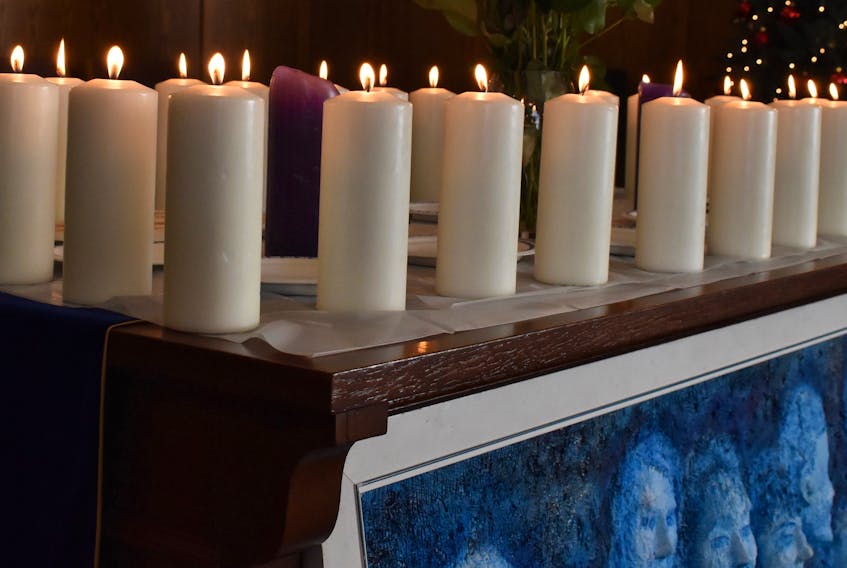Debbie Langston
Guest Opinion
Today, we gather to honour women. Women who have been murdered, women who are survivors of sexual assault, women whose lives have been forever altered by violence.
Today, as we remember the 14 women murdered 30 years ago at l’Ecole Polytechnique, Montreal, on the 6th of December, 1989; as we remember the 10 women murdered on P.E.I. since 1989; as we remember the thousands of Indigenous women murdered and missing from their families across Canada, let us remember that violence against women hurts us all.
While the stories that follow are composites, they represent the true experiences of many women from across Canada and the world.
Elizabeth is the daughter of a survivor of sexual violence. Her life has been shaped by her mother’s trauma. Playdates and parties were unrealized, childish dreams. Instead, she bore witness to frequent bouts of depression and substance abuse, as her mother foundered under the weight of being violated. Now an adult, Elizabeth is working hard to overcome the effects of intergenerational trauma, so that her own daughter may have a childhood free from the anxiety that gnaws at you when you are at school and infects your dreams at night. A childhood free from worrying about where her mother is, if she is alive, and who will take care of her. Elizabeth loves her mother and knows the trauma she endures; she strives to be happy and healthy herself.
When Karishma was murdered by her ex-husband, her death left a hole in countless lives. Her parents are doing their best to care for Karishma’s children, but the family is devastated. Karishma’s eldest son is angry; he is angry at his mother for leaving him, angry for all the violence he witnessed, angry at the man who took his mother’s life. He doesn’t mean to, but sometimes he lashes out. The ripple effects of Karishma’s death are felt by her community: colleagues, pupils, and neighbours. They struggle to make sense of her death; their sense of safety undermined, they sleep less and worry more.
Rose couldn’t wait to move away from home to attend university. She was going to change the world and dreamt of becoming a doctor. Rose knew that one in five female university students is sexually assaulted, but she never thought that she would be one of them. Now Rose is struggling to rebuild her sense of self, safety, and trust in others. Her grades are slipping as she deals with PTSD; with her falling grades go her dreams for the future. Rose will continue to deal with the injustice of the assault, and she knows that there will be more women like her. Rape culture is real, it exists in the friendships in which we trust, in fraternities, on university campuses, and in communities. Rose will be forever changed, her life altered by an act of violence, while her attacker and society look away.
After I wrote these stories, I had second thoughts. I worried that the language was too direct, that some people might get upset, that others might feel uncomfortable. I realised that thirty years on, we are still fighting for change. If things are to improve, we need to feel discomfort. We need to be shaken from complacency and act. The names in the stories may not be real, but the stories are. The women in them are our friends, our family, our colleagues, our neighbours, our community. Across Canada in 2018, 148 women were murdered, many more went missing, and countless numbers experienced harassment or sexual assault. When we do not listen to the voices of women, we do a disservice to victims, survivors and ourselves.
Violence is woven into the fabric of our society; it steals lives and holds us hostage. Violence is prevalent in the lives of children and women; it leaves them disempowered and afraid. The ripple effects of violence are insidious, felt by the individual, by communities, and by society. If we do not want to be here in 30 years’ time, giving speeches and counting victims, if we want to make lasting change, it is our duty to unite and to stand with victims of violence, supporting survivors.
Together we must “Support the person. Involve the community. Right the world.”
Debbie Langston of Blooming Point, P.E.I., is the newly appointed chairperson of the P.E.I. Advisory Council on the Status of Women.









